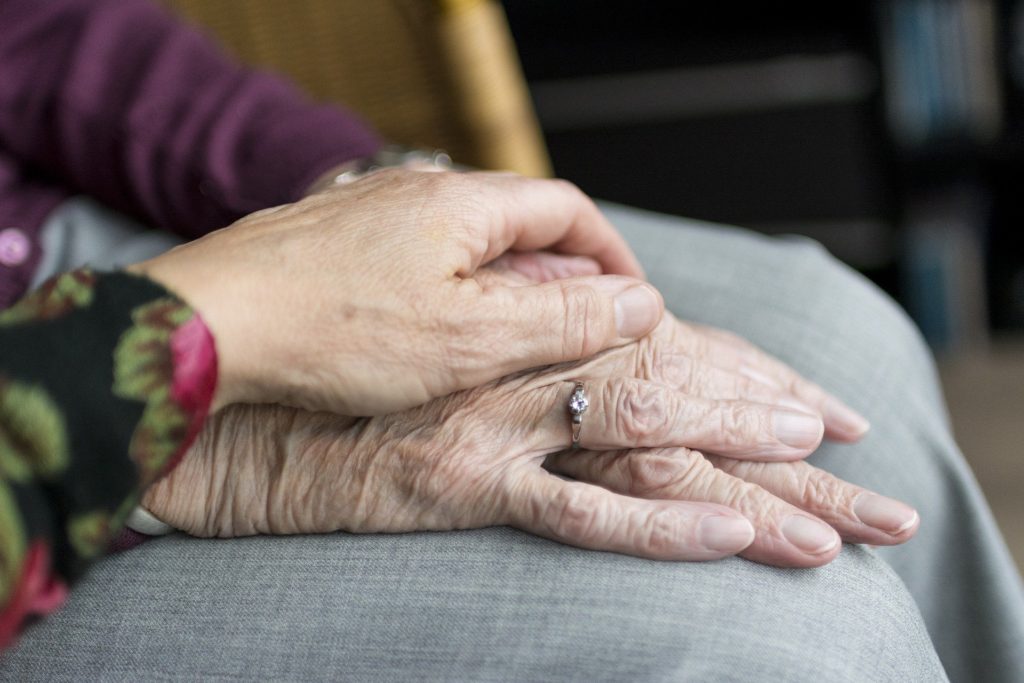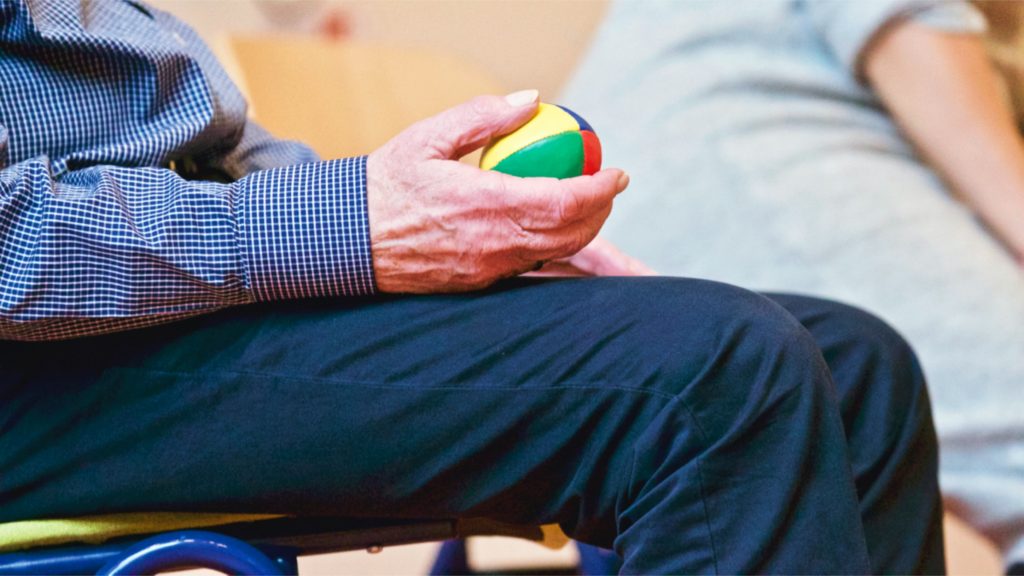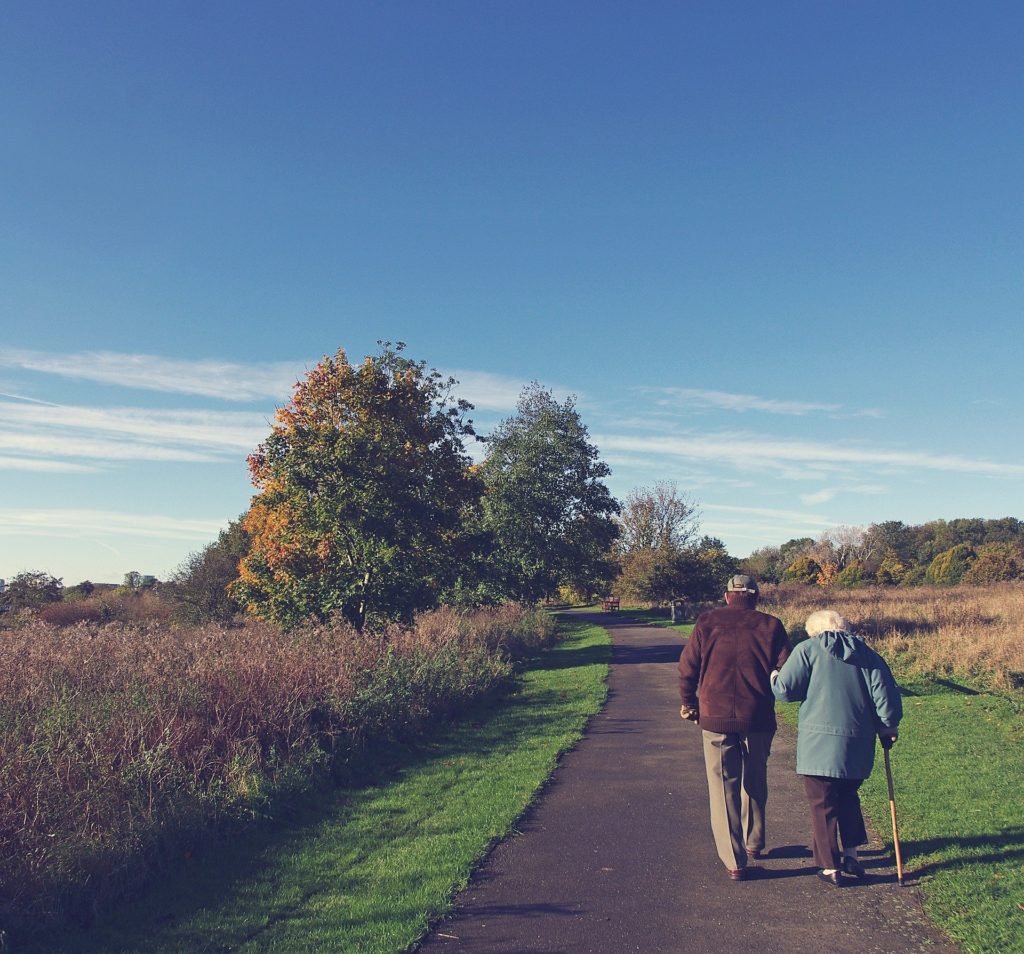This website is informational and cannot diagnose or treat illness or disease. Medical marijuana should be used under the direction of a licensed healthcare provider. This site contains advertisements. If you click a link and make a purchase, MarijuanaMommy.com may receive a commission.
Can cannabis help patients with dementia and Alzheimer’s disease?
An overwhelming number of patients and caregivers report that cannabis–especially CBD and low-dose THC–can have a significant impact on patients suffering from dementia and/or Alzheimer’s disease. Cannabis may help reduces some of the symptoms experienced by patients with these diseases.
Of course, more research is needed, but much existing research supports the benefits. Anecdotal evidence and patient reports tell us that medical cannabis often improves the quality of life of patients with dementia and their caregivers. We expect future research to further confirm and explore the clinical findings.
Here are five ways cannabis may impact dementia.

CBD as a Neuroproteant
This historical fact might sound unbelievable to some, but it is 100% true: In 2001, the United States government filed for a US patent on CBD, cannabidiol, claiming CBD is a neuroprotectant. This implies CBD helps protect brain cells from further damage from the disease process and may even have restorative properties.
In their abstract, the US Department of Health claims, “Cannabinoids have been found to have antioxidant properties, unrelated to NMDA receptor antagonism. This new found property makes cannabinoids useful in the treatment and prophylaxis of wide variety of oxidation associated diseases, such as ischemic, age-related, inflammatory and autoimmune diseases. The cannabinoids are found to have particular application as neuroprotectants, for example in limiting neurological damage following ischemic insults, such as stroke and trauma, or in the treatment of neurodegenerative diseases, such as Alzheimer’s disease, Parkinson’s disease and HIV dementia.”
We don’t have enough research to consider cannabis an official front-line treatment for Alzheimer’s disease, however, we do have research supporting the antioxidant actions of cannabinoids. Additionally, in vitro studies show CBD can spur neurogenesis in human brain cells, suggesting the compound may protect brain cells.

Controlling Agitation & Psychological Outburts
Agitation and emotional outbursts are challenging symptoms experienced by many patients with Alzheimer’s disease and dementia. Psychological outbursts can be particularly challenging for the families and caregivers of patients.
Patients and caregivers regularly report that adding, cannabis in the form of CBD and/or THC, to a patient’s healthcare regimen often reduces or eliminates behavioral outbursts.
A prospective observational study conducted in 2019, determined, “ An oral cannabis extract with THC/CBD, in higher dosages than in other studies, was well tolerated and greatly improved behavior problems, rigidity, and daily care in severely demented patients.”
We also have clinical research examining the synthetic form of THC, nabilone, which clearly reduced agitation in patients with dementia.

Fight Memory Loss
Let me start by saying that cannabis is NOT a magical treatment that will allow patients to recover all their lost memories and return to life before dementia. Sadly, there is NO medication or treatment that can do that. However, research and anecdotal evidence support the idea that cannabis may stimulate the brain to gently improve memory and memory-related behavior.
We don’t have human studies to support this, but animal studies show that regular administration of CBD and THC did improve memory and performance in animals suffering from age-related and illness-related memory issues. Caregivers also report modest improvements in memory-related activities after patients begin a regular cannabis regimen.

Increase Appetite
Diminishing appetites, wasting syndrome, and failure to thrive are common issues experienced by patients with dementia. These symptoms can be extremely alarming for caregivers.
Cannabis is world-famous as an appetite stimulant. In animal models, researchers found delta 9 THC triggers hunger hormones.
Drobinol, a synthetic form of THC, has been used to address a failure to thrive. Cannabis is used regularly to increase appetite among patients with cancer. While synthetic cannabinoids are the only option for some US patients. Cannabis clinicians routinely encourage natural plant-derived cannabinoids over synthetics because they tend to cause fewer side effects compared to synthetics.

Improve Sleep
The research about how cannabis affects sleep and sleep disorders is conflicting, but the anecdotal evidence is clear. Caregivers consistently report that adding cannabis improves sleep in terms of time and quality for patients suffering from dementia.
Improving a patient’s sleep can dramatically improve the quality of life not only of the patient but it can significantly improve the quality of life for the patient’s caregivers as well.

Reduction in Rigidity and Pain
One of the most popular uses for medical cannabis is addressing chronic pain. Patients with dementia frequently experience unexplained chronic pain. Many patients also experience muscle rigidity which can cause significant pain.
Patients with dementia are also often unable to effectively communicate the quality or quantity of their pain and that can make treating it extremely difficult.
Adding medical cannabis can effectively address issues of chronic pain thus significantly improving the quality of life for the patient without suffering from the risks or side-effects of traditional pharmaceutical pain-relievers. Research show’s low-dose THC and CBD can help reduce rigidity in patients thus decreasing pain and increasing function.

Conclusion
There are many potential benefits of adding medical cannabis to the healthcare routine of a patient with dementia. Historically patients with dementia have experienced improved appetite, improved sleep, a reduction in rigidity and pain, and a reduction in behavioral outbursts when adding medical cannabis.
Many patients wonder how much cannabis to take. Finding the ideal dose can be challenging. Overall patients with dementia often report positive effects on a daily regimen of CBD and low-dose THC, but everyone is different and occasionally patients require higher doses.
Patients and caregivers should always speak with their healthcare provider before adding a new substance or medication to their healthcare regimen.
Trending Now






